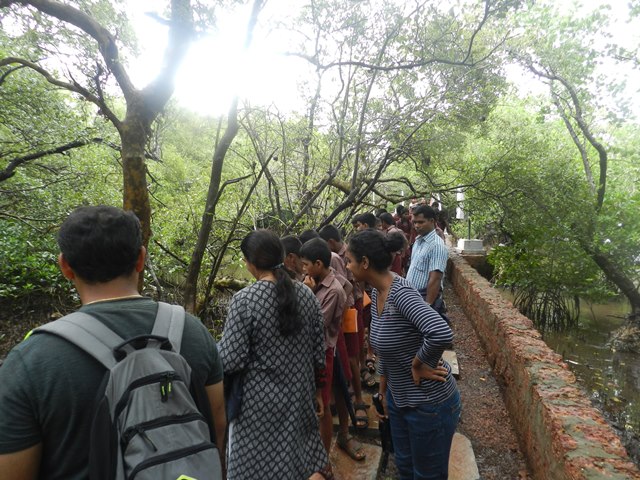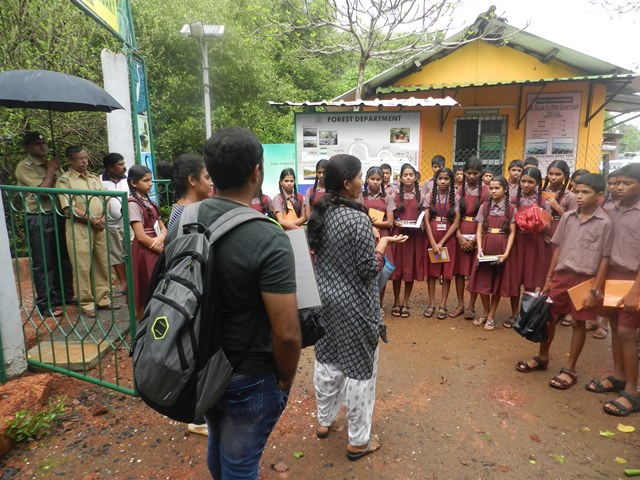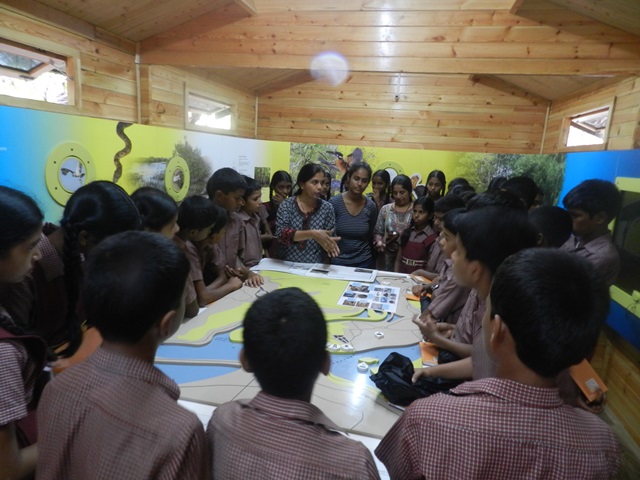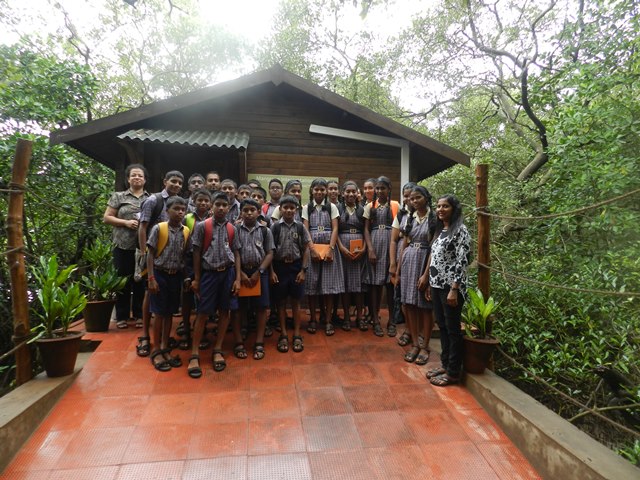12 Jun, 2017
The Energy and Resources Institute (TERI) in Goa has been engaged by the CMPA Project to support the Biodiversity Management Committee of Chorao Island, off Goa’s capital Panjim. As part of this support, TERI has begun organising educational field trips for schools in Chorao. In June 2017, some 60 students and their teachers of Dayanand High School and St. Bartholomew High School visited the Dr. Salim Ali Bird Sanctuary on Chorao, which is one of the CMPA pilot sites.
.jpg)
Students of the Dayanand High School, Chorao
The field trip was meant to introduce students to the mangrove ecosystem. Adaptations such as tolerance to salt water and inundation were explained and how the presence of pneumatophores and stilt roots allows mangroves to maintain their tenuous hold on the soft soil of mud flats. The students were made aware of the various functions of the mangrove ecosystem, including their role as nurseries to many fish species and as an important source of food, timber products, medicinal plants, etc. While moving through the dense mangrove forest, the students started to understand, how mangroves can protect the coastline against wave action and storm surges.

Along the sanctuary’s trail, the students were shown various species of mangroves and their associated fauna, such as the mud crab

Introducing the visitors to the functioning and importance of mangrove ecosystems

Visit to the sanctuary’s Interpretation Centre, with interactive displays and the possibility to reflect on some of the observations made during the walk

Students of the St Bartholomew's High School.
The feedback provided by the students showed their appreciations of the new look of the Dr. Salim Ali Bird Sanctuary and the great learning experience this facility provides on their island. They confirmed that it had helped them to gain a much better understanding of the biodiversity of mangrove ecosystems, and their importance to the human wellbeing.
For further details, please contact Dr Aaron Lobo at aaron.lobo@giz.de
© 2014 IGBP. All Rights Reserved.
Site By: Virtualpages
